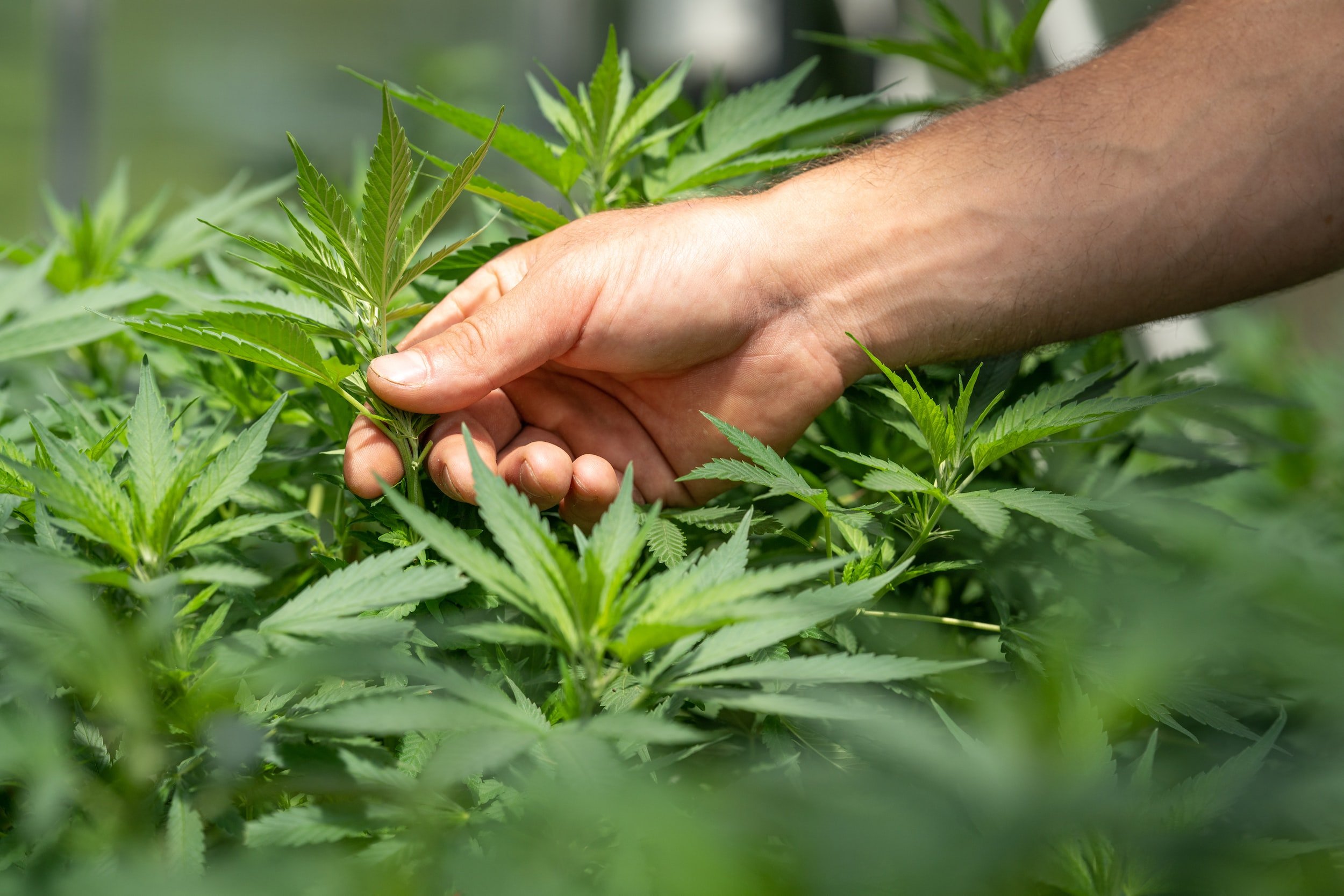Blog By: Matthew Pakkala
*Disclaimer: This blog was written before the passage of medicinal marijuana in the Kentucky General Assembly during the 2023 legislative session.
The availability of medicinal marijuana or “cannabis” is not a new development. Cannabis is legally available–in some capacity, be it for medicinal or recreational use–in thirty-seven of the fifty United States, as well as in territories such as the U.S, Virgin Islands and Guam; however, the availability of medicinal cannabis is new to Kentucky.[i]
Beginning on January 1, 2023, an executive order signed by Governor Andy Beshear made a conditional pardon available for Kentuckians who wish to use cannabis as a treatment option for specified medical conditions.[ii] It is important to note that this executive order does not grant Kentuckians carte blanche with respect to cannabis use, but rather conditionally pardons their use of the plant–and its derivatives–if four prerequisites are met.[iii]
The first of these conditions being that the medical cannabis has “been lawfully purchased in a jurisdiction within the United States of America but outside of the Commonwealth of Kentucky.”[iv] In theory, this requirement purports to allow Kentuckians to purchase their cannabis in any of the states where medicinal cannabis is available; however, in practice, Kentuckians are more than likely limited to their neighboring states within driving distance which have passed cannabis legislation. Because federal law governs air travel and cannabis remains illegal at the federal level, Kentuckians would be unable to legally fly into the Commonwealth with otherwise legally purchased cannabis products.[v] This would leave Kentucky residents with the option of visiting Illinois, Missouri, Ohio, Virginia, or West Virginia for the purposes of procuring their medicinal cannabis.[vi] Of those states, only Missouri, Illinois, and Virginia have fully legalized cannabis; thus, Kentuckians would be able to purchase their cannabis and drive it in from those states[vii]. Ohio and West Virginia, on the other hand, have only legalized cannabis for medicinal use therefore requiring a medical cannabis card in order to purchase the product.[viii] Unfortunately for Kentuckians hoping to purchase their cannabis products in Ohio or West Virginia, the required medical card is only available to residents of those states.[ix]
The second condition requires the individual seeking application of the conditional pardon to have written proof of purchase detailing the place of purchase, the address of the purchase location, and the date of the purchase.[x] This requirement ensures that the cannabis was legally sourced rather than purchased in a black-market setting.[xi] The third requirement limits the individual’s possession of marijuana or cannabis to eight ounces.[xii]
The fourth, and final, condition pertains to qualifying medical conditions.[xiii] In order to qualify under the order, an individual must possess a written certification from a healthcare provider showing that the individual has been diagnosed with at least one of the twenty-one qualifying medical conditions.[xiv] These conditions include diseases such as Crohn’s or Huntington’s, as well as other afflictions such as intractable pain, HIV, sickle cell anemia, or cancer, among others.[xv] The written certification is not considered to be a prescription, but rather a prerequisite for obtaining the conditional pardon.[xvi]
In the event that an individual is able to meet these four requirements, they will qualify for the conditional pardon delineated by Executive Order 2022-798 which will shield them from prosecution under KRS218A.1422.[xvii] KRS218A.1422 is the Commonwealth’s Possession of Marijuana statute which bars a person from knowingly and unlawfully possessing marijuana or cannabis. [xviii]
While medicinal cannabis advocates may celebrate Governor Beshear’s conditional pardon, it is imperative that they understand the distinction between the conditional pardon and full-fledged medical cannabis legalization. Without the state legislature’s passage of a piece of comprehensive cannabis legislation, the Commonwealth of Kentucky’s stance on cannabis exists in a metaphorical grey area. Cannabis remains illegal at the state and federal levels, but at the same time, its use is available to those in certain situations.[xix]
The introduction of cannabis legislation would eliminate some of the uncertainty and inconvenience associated with the Executive Order.[xx] It would alleviate the administrative burden of processing the pardon applications and determining whether an individual has complied with the required conditions, as well as save Kentuckians time and money spent traveling out of state to acquire their medicine of choice.
Additionally, legislation would allow the Commonwealth to impose a tax at the point of sale for medical cannabis products rather than allowing that money to flow out of Kentucky and into its neighboring states.[xxi] The Tax Foundation, the self-proclaimed leading independent tax policy nonprofit[xxii], estimates that Kentucky is leaving over $83 million dollars in tax revenue[xxiii] on the table by not having comprehensive legislation in place. As demonstrated by some of the Commonwealth’s neighboring states, this potential revenue could be allocated to programs such as education for at-risk youth[xxiv] or public health initiatives.[xxv]
Also, some form of legislation could open the door for Kentucky farmers to profit off of cannabis. As one of the nation’s leading hemp producers,[xxvi] it is not unreasonable to think that the closely related cannabis plant could also thrive in the Commonwealth.[xxvii]
Finally, comprehensive legislation could eliminate the arbitrary nature in which medicinal cannabis can be classified. While the pardon protects an individual from criminal prosecution, it says nothing of an employer’s right to police their employees’ use of medicinal cannabis.[xxviii] Therefore, an employee may fully comply with the order’s requirements, but still be disciplined by an employer.[xxix]
With these points in mind, one cannot help but wonder, does Executive Order 2022-798 truly better the Commonwealth or is it just blowing smoke?
[i] Heather Close, Using his pardon power, Beshear lets people with certain certified health conditions possess up to 8 ounces of medical marijuana, Ky. Health News (Nov. 16, 2022), https://ci.uky.edu/kentuckyhealthnews/2022/11/16/using-his-pardon-power-beshear-lets-people-with-certain-certified-health-conditions-possess-up-to-8-ounces-of-medical-marijuana/ [https://perma.cc/AF2Y-QF8N]; A.J. Herrington, US Virgin Islands Passes Cannabis Legalization Bill, Forbes (Jan. 20, 2023, 10:51 AM), https://www.forbes.com/sites/ajherrington/2023/01/20/us-virgin-islands-passes-cannabis-legalization-bill/?sh=700457772a54 [https://perma.cc/VX7F-FKUT].
[ii] Exec. Order No. 2022-798, 2022 Bill Text KY E.O. 364 (2022).
[iii] Id.
[iv] Id.
[v] Governor Beshear’s Executive Order On Medical Cannabis Q&A, Ky. Norml, (Mar. 3, 2023, 3:02 PM),
https://www.kynorml.org/news/governor-beshears-executive-order-on-medical-cannabis-qa#/ [https://perma.cc/GZ2S-AC64].
[vi] Marijuana Legality by State, DISA, https://disa.com/maps/marijuana-legality-by-state (last updated Feb. 2023) [https://perma.cc/4VLT-YBXJ].
[vii] Id.
[viii] Gladys Bautista, How easy will it be for Kentuckians to get medical marijuana? A look at laws in neighbor states, WLKY (Nov. 16, 2022, 6:44 PM), https://www.wlky.com/article/how-to-get-medical-marijuana-kentucky-other-states-laws/41984752 [https://perma.cc/AFH8-YQTS].
[ix] Id.
[x] Exec. Order No. 2022-798, supra note ii.
[xi] What’s the Difference Between Black Market Cannabis and Legal Goods?, Medcare Farms (July 24, 2020), https://medcarefarms.com/blog/5-whats-the-difference-between-black-market-cannabis-and-legal-goods/ [https://perma.cc/PWC3-Q4UZ].
[xii] Exec. Order No. 2022-798, supra note ii. Exec. Order No. 2022-798, supra note ii.
[xiii] Exec. Order No. 2022-798, supra note ii; What Does Kentucky’s New Executive Order Permitting Medical Marijuana Mean for Employers?, Pre Employ (Dec. 9, 2022), https://www.pre-employ.com/newsblog/what-does-kentuckys-new-executive-order-permitting-medical-marijuana-mean-for-employers/ [https://perma.cc/8VCF-ZU9J].
[xiv] Pre Employ, supra note xii.
[xv] Exec. Order No. 2022-798, supra note ii.
[xvi] Id.
[xvii] Id.
[xviii] Ky. Rev. Stat. Ann. § 218A.1422
(West 2011).
[xix] What We Know about Marijuana, CDC, https://www.cdc.gov/marijuana/featured-topics/what-we-know-about-marijuana.html#:~:text=Marijuana%20remains%20illegal%20at%20the%20federal%20level%3B%20however%2C,are%20increasingly%20legalizing%20it%20for%20non-medical%20adult%20use. (Mar. 1, 2023) [https://perma.cc/72QV-P2LW].
[xx] See Exec. Order No. 2022-798, supra note ii.
[xxi] Rebecca L. Haffajee & Amanda Mauri, Cannabis Liberalization In The US: The Policy Landscape, HealthAffairs (July 1, 2021), https://www.healthaffairs.org/do/10.1377/hpb20210518.36548/ [https://perma.cc/NW8Q-5M3C].
[xxii] Who We Are, Tax Found., https://taxfoundation.org/about-us/ (last visited Mar. 11, 2023) [https://perma.cc/D7XV-NDJ3].
[xxiii] Christy Bieber, Marijuana Tax Revenue: A State-by-State Breakdown, The Motley Fool (Nov. 14, 2022, 11:31 AM), https://www.fool.com/research/marijuana-tax-revenue-by-state/ (estimating figure based on excise taxes imposed on cannabis sales by other states) [https://perma.cc/SLA5-97JV].
[xxiv] Cannabis Tax Revenue in States that Regulate Cannabis for Adult Use, MPP (Apr. 5, 2022), https://www.mpp.org/issues/legalization/cannabis-tax-revenue-states-regulate-cannabis-adult-use/ (noting that Virginia allocates 40% of its cannabis related tax income to “pre-K education for at-risk children”) [https://perma.cc/T433-E7X7].
[xxv] Id.
[xxvi] Juanita Rico, Top 10 Hemp Growing States in the USA, Alt. Prod. Expo (Mar. 7, 2022), https://altproexpo.com/blog/top-10-hemp-growing-states-in-the-usa/ (noting that Kentucky is home to over 32,000 acres of hemp) [https://perma.cc/RL8V-VBL7].
[xxvii] Sian Ferguson, Hemp vs. Marijuana: What’s the Difference?, Healthline (Aug. 27, 2020), https://www.healthline.com/health/hemp-vs-marijuana#marijuana (noting the similarities shared by hemp and marijuana) [https://perma.cc/MLE6-BWGA].
[xxviii] Kentucky Governor Signs Executive Order Protecting Medical Marijuana Use: 6 FAQs for Employers, Fisher Phillips (Nov. 17, 2022), https://www.fisherphillips.com/news-insights/kentucky-governor-signs-executive-order-protecting-medical-marijuana-use.html [https://perma.cc/AMA7-689M].
[xxix] Id.



